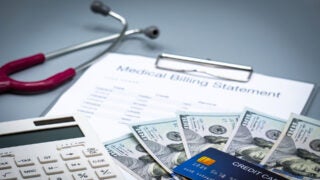A recent USC study finds concerns about hospitals offering medical payment products may be overblown.
Economics
News Listing
USC Price experts bring together political scientists and real estate economists to examine one of California’s most persistent policy problems.
USC experts discuss the systemic issues plaguing the U.S. banking system and the regulatory gaps exposed by the financial collapse of Silicon Valley Bank and other institutions.
USC study finds that personal voluntary behaviors to avoid infection also played a role in the downturn.
It’s the second time in three years that members of the law school’s Center for Transnational Law and Business spoke to the trade organization.
Consumers may need to consider more cost-effective alternatives as compounding economic crises make it more expensive to enjoy holiday traditions we know and love. USC experts explain.
Overall life satisfaction continues to decline and racial discrimination against Asian and Black Angelenos remains high, but fewer people are planning to leave the county, according to a new LABarometer livability and affordability survey.
Nearly a quarter of Los Angeles County households experienced food insecurity over the last 12 months, up 7 percentage points since the end of 2021, according to a study released by USC Dornsife’s Public Exchange.
In the 1980s, making shareholders rich became the priority. USC Gould’s Dorothy Lund notes. That’s unlikely to change, unless ...
When you factor in the cost to the environment, USC Price’s Marlon Boarnet notes, the price at the pump — even at today’s prices — doesn’t cover the true cost of using gasoline.








